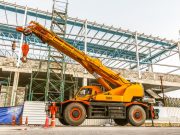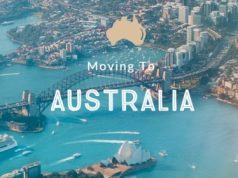By introducing a three-tiered examination that would cut down on red tape and shorten the wait for permanent residency, the Albanese administration will drastically streamline Australia’s immigration system.
In response to a migration review, the home affairs minister, Clare O’Neil, gave some indication on Thursday at the National Press Club that the government will proceed to replace existing skills evaluations with new labour market testing. She also pledged fairer pay levels for new hires.
The primary goals of the reforms will be to strengthen the authenticity of the visa system, move international student visas away from serving as a de facto work visa in favour of more qualified graduates, and rework the points system for permanent migration to reward those who can contribute the most to Australia.
The federal government will also start preparing with the states for infrastructure and service provision to meet population growth during the national cabinet meeting on Friday in Brisbane. The fact that there is “no genuine method at the moment for us to make plans for population changes,” according to O’Neil.
By the end of 2023, according to O’Neil, “all temporary skilled workers will have an opportunity to permanent residency” following another round of consultation and the execution of the government’s final policy.
In an effort to initially avoid discussion over whether the policy would produce a “big Australia or small Australia,” O’Neil stated that the focus was on the “quality of our migration programme.”
O’Neil, however, responded to inquiries by saying, “If we implemented all the things I’ve talked about, the consequence would be a smaller migration programme for the country.”
The Australian Council of Trade Unions and business organisations including the Australian Chamber of Commerce and Industry have praised the moves to strengthen routes to permanence and recruit qualified employees. The amendments have gained widespread support.
The prime minister, Anthony Albanese, said that “the migration system that we received was broken” prior to O’Neil’s speech and highlighted the fact that over one million individuals were in line for visas as evidence.
In order to customise our immigration system so that it benefits both the individuals who come to Australia and additionally so that it serves our national interests, we have to first determine the skills we need and the regions where we need more workers.
The main recommendation of the report is to establish three tiers of regulation for immigrants: a “light-touch” approach for highly skilled immigrants making high salaries; a mid-level cohort of immigrants making above the temporary skilled migration income threshold; and a lower-wage cohort in industries with a lack of skilled workers, like the care industry.
In order to set the rate of the upper threshold, the administration has agreed to this suggestion and will consult with the states, corporate sector, unions, and civil society.
O’Neil stated at the press club that the second tier’s new temporary skilled migration salary cutoff will be $70,000, up from $53,900.
According to O’Neil, this was the “goldilocks” threshold because it was neither too high to guarantee “a skilled worker programme, not a guest worker programme,” nor too low to turn away younger applicants.
According to O’Neil, the government will provide “proper, capped, safe, tripartite paths for workers in key sectors, such as care” for the third tier.
O’Neil stated that the government and Jobs and Skills Australia will perform “proper, evidence-based assessments of skills needs” as opposed to occupation listings.
She indicated that this would take the place of “the current out-of-date approaches which everyone agrees are not working” and that labour market testing, which mandates that firms post job openings locally before hiring foreign employees, would probably be scrapped.
Changes to Make Sure That Students are “Genuinely in Australia to Study”
The government will implement changes to guarantee “that every international student is genuinely in Australia to study, particularly by restricting requirements and by improving the quality assurance of education providers,” according to a summary of the government’s reaction by the home affairs department.
With a simpler route to graduate visas, it also promised to shorten the time students remain on bridging visas.
O’Neil highlighted care work, technology, engineering, and construction as skill gaps that may be met by giving international students higher priority at the Press Club.
The reviewers expressed their “deep concern” about how the existing system increases the potential of exploitation that temporary migrant workers suffer.
Employer sponsorship in particular “provides the opportunity for exploitation… since it restricts an employee’s ability and willingness to come forward with non-compliance,” according to the report.
The review suggests giving temporary migrant employees the option to leave their present position and up to six months to pursue employment with a different company in the same industry or line of business.
Increased safeguards were agreed upon by the Albanese government, including “increasing mobility” of temporary migrants “without compromising their right to remain in Australia.”
The government promised that immigrants “will have clearer pathways to permanent residence, avoiding the risk of migrants being left in ‘permanently temporary’ uncertainty.”
According to the research, “successful governments” have put restrictions on permanent migration, which is now capped at 195,000, but “the temporary migrant generation has been demand-driven and has more than doubled in size since 2007 and stands at 1.8 million people.
The Albanese government intends to boost the social licence for immigration by collaborating with state and territory governments to enhance investment in housing, infrastructure, and services in response to the Coalition’s charge that Labour is aiming for a “big Australia.”
Family-related migration will be subordinate to reforms that enhance skilled migration. The outline said that the “need for reform of the family programme” was accepted by the administration, but that it “will be considered separately” from the final plan by the end of 2023.
Nick McKim, a spokesman for the Green Party on immigration, claimed that the study had “no strategy for repairing a broken family reunion visa system by attempting to make it faster, fairer, and more affordable.”











































